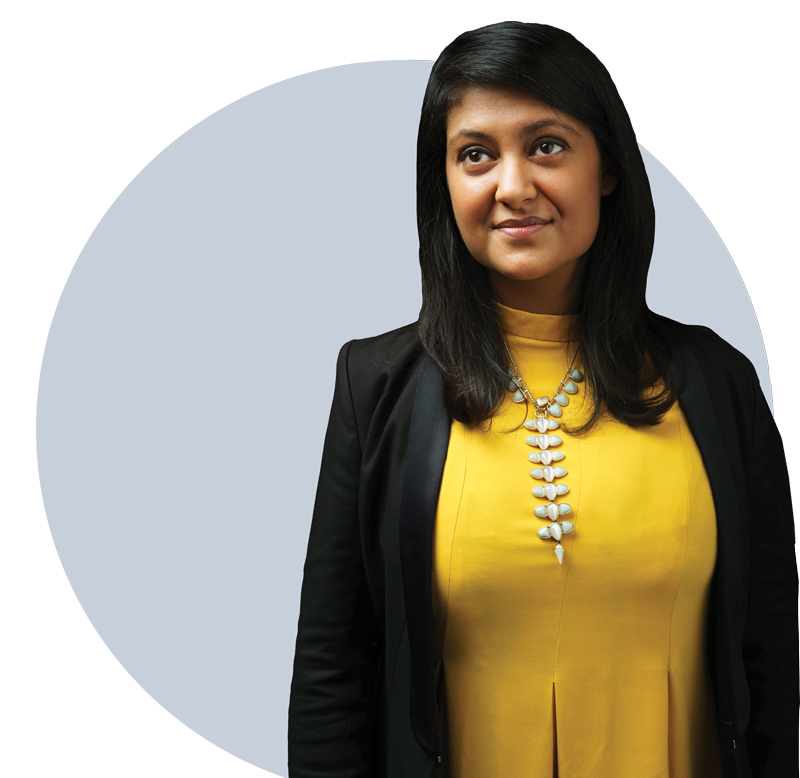Sahba Besharati doesn’t just want to know how humans become aware of themselves and of others in the world; her research also explores how the brain changes following brain injury.
She is using different kinds of technologies — such as medical imaging and virtual reality (VR) — to look inside the brain and manipulate “self-experiences,” to explore what drives these innate human experiences of self-consciousness.
“People always call it ‘the hard problem of consciousness,’” explains Besharati, a CIFAR Azrieli Global Scholar in the Brain, Mind & Consciousness program, and a senior lecturer in cognitive neuroscience at the University of Witwatersrand. “But it’s like, the interesting problem of consciousness, right? I wouldn’t choose to study anything else about the brain. You don’t shy away from what’s hard.
“Everyone can benefit from knowing a little more about the brain and how it works.”
Based in Johannesburg, South Africa, Besharati first began her academic journey studying psychology and says she juggled between pursuing social or neuropsychology.
“And the brain just really spoke to me,” she says. “All of us on some level have been affected by brain damage, whether we know it or not. Perhaps it’s a father who’s had a stroke or a sister with epilepsy, or a grandfather with dementia. Later on, I realized how these personal reasons initially attracted me to the study of the brain and its disorders.”
In Besharati’s lab, she is currently setting up clinical-based work rooted within the South African context — the country has one of the highest numbers of neurodevelopmental, traumatic brain injury and stroke cases in the world. In studying disorders of consciousness following brain injury, she aims to link certain questions about bodily self-consciousness to specific areas and networks damaged in the right hemisphere.
To gain further insights into cross-cultural influences of consciousness and embodiment, Besharati’s group uses social experimental methods and brain-imaging. Recently, she is also exploring virtual reality to study implicit racial bias.
“Although reductionist in nature, immersive virtual reality can be used to actually put yourself in the body of another racial group, experimentally at least, which can lead to a reduction of your implicit racial bias,” she explains. “But they’ve only done this with caucasian participants and never drawn on Black or other racialized populations, and this “Western bias” is often found in the sciences, which often excludes really important questions. In this case, using cross-cultural groups and participants is critical, because your experience with race and racism would likely be really, really different and impact your results.” Looking ahead to the next decade, she is excited to learn from — and collaborate with — her peers in the Brain, Mind & Consciousness program, and with researchers in other programs. She also hopes to make an impact as a mentor to early-career women researchers.
“I have had really strong mentors and role models,” she says. “And as a woman in science, especially one who has grown up as a religious minority, a cultural and racial minority in a male-dominated discipline, and as a mother of two young children, I hope through my work I can be an example to other young, female scientists.”
Ultimately, she hopes to make the brain more understandable and accessible to everyone. “I think understanding the brain can be important for everyone. Regardless of brain injury, everyone can benefit from knowing a little more about the brain and how it works.”
Related Articles
-
Nicolas Papernot and Catherine Régis appointed Co-Directors of the CAISI Research Program at CIFAR
December 12, 2024
-
CIFAR signs San Francisco Declaration on Research Assessment
December 09, 2024
-
Graham Taylor, Vector Institute: Using AI to track insect biodiversity loss in real time
November 29, 2024
-
Ross Mitchell, Amii: AI note-taking for doctors
November 16, 2024
